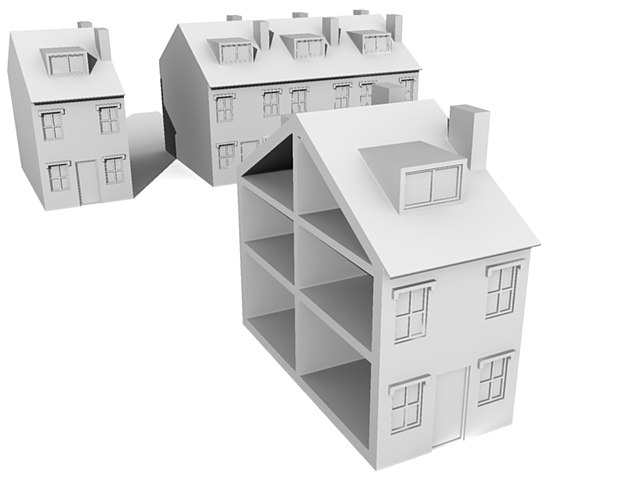A fixture, as a legal concept, means any physical property that is permanently attached (fixed) to real property. Property not affixed to real property is considered chattel property. Fixtures are treated as a part of real property, particularly in the case of a security interest. A classic example of a fixture is a building, which, in the absence of language to the contrary in a contract of sale, is considered part of the land itself and not a separate piece of property. Generally speaking, the test for deciding whether an article is a fixture or a chattel turns on the purpose of attachment. If the purpose was to enhance the land, the article is likely a fixture; if the article was affixed to enhance the use of the chattel itself, the article is likely a chattel.
A bathroom sink fixture out of order
In English common law, real property, real estate, immovable property or, solely in the US and Canada, realty, refers to parcels of land and any associated structures which are the property of a person. In order for a structure to be considered part of the real property, it must be integrated with or affixed to the land. This includes crops, buildings, machinery, wells, dams, ponds, mines, canals, and roads. The term is historic, arising from the now-discontinued form of action, which distinguished between real property disputes and personal property disputes. Personal property, or personalty, was, and continues to be, all property that is not real property.
Image: Back to Back House


